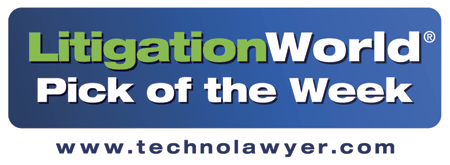eDiscovery Case Law: Via Rule 45 Subpoena, Plaintiff Allowed to Search Non-Party Personal Hard Drive

A party can subpoena a nonparty to provide a personal computer for the forensic review of electronically stored information (ESI) under Rule 45 of the Federal Rules of Civil Procedure.
In Wood v. Town of Warsaw, N.C., No. 7:10-CV-00219-D, (E.D.N.C. Dec. 22, 2011), a former police chief alleged his former employer unfairly terminated him because of his age under the Age Discrimination in Employment Act. During discovery, the plaintiff sent a non-party subpoena to the former town hall manager, who the plaintiff claimed was responsible for his termination. In the subpoena, the plaintiff asked that the former town manager make his personal computer available for a search by a forensic expert using agreed-upon search terms. He also offered to pay for the cost of the search, excluding any privilege review that the town manager wanted to conduct.
The town manager objected to the subpoena and attempted to modify it, claiming the search would be expensive, would be time-consuming, and would invade his privacy. He also claimed he did not use his personal computer for work. He offered to search the computer himself and provide any documents that were responsive to the plaintiff’s requests in the subpoena.
The court reviewed Rule 45 of the Federal Rules of Civil Procedure, which required it to balance three factors in deciding whether to modify or quash a subpoena: (1) the relevance of the information sought, (2) the plaintiff’s need for the information, and (3) the potential hardship to the non-party. In doing so, it concluded that the plaintiff’s narrow request for “non-privileged documents identified by an electronic search for key words related to the claims and defenses asserted by the parties” was reasonable. The court also noted that “in this age of smart phones and telecommuting, it is increasingly common for work to be conducted outside of the office and through the use of personal electronic devices.” Therefore, it was reasonable to expect to find relevant ESI on the town manager’s computer. Finally, the fact that the plaintiff assumed all of the costs except the privilege review minimized the burden on the town manager.
The court also noted that the subpoena’s requests were limited to tangible documents, not including ESI, and would thus not “encompass the information sought by the request to search [the town manager’s] hard drive.”
Therefore, it ruled that the subpoena was proper but modified it to clarify that the plaintiff was not entitled to the complete contents of the hard drive—just to those responsive to the search terms that were neither privileged nor confidential.
So, what do you think? Should the search have been allowed? Please share any comments you might have or if you’d like to know more about a particular topic.
Case Summary Source: Applied Discovery (free subscription required).
Disclaimer: The views represented herein are exclusively the views of the author, and do not necessarily represent the views held by CloudNine Discovery. eDiscoveryDaily is made available by CloudNine Discovery solely for educational purposes to provide general information about general eDiscovery principles and not to provide specific legal advice applicable to any particular circumstance. eDiscoveryDaily should not be used as a substitute for competent legal advice from a lawyer you have retained and who has agreed to represent you.






